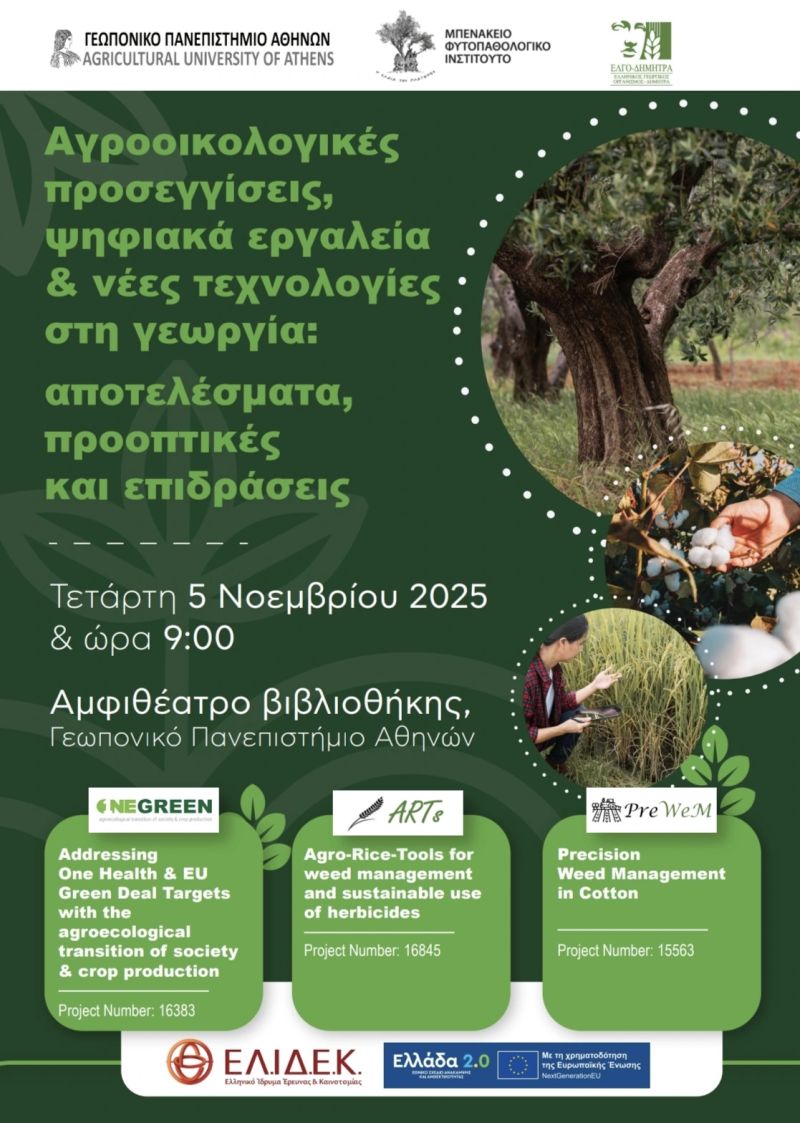
Novel digital tools for weed mapping and sustainable use of herbicides in rice
At a glance
Funding Agency
Hellenic Foundation of Research and Innovation
Lead Beneficiary

Benaki Phytopathological Institute – Laboratory of Weed Science
Duration

2 years
Total Fund

169.999€
About the project
The ARTs project is a groundbreaking 24-month initiative designed to tackle herbicide-resistant weeds in rice cultivation in Thessaloniki, Greece, the nation’s most vital rice-producing region. Targeting three major weed species – Oryza sativa, Echinochloa spp., and Cyperus difformis—which have developed resistance to ALS and ACCase inhibitors, the project addresses a critical threat to crop sustainability and farm profitability. Using state-of-the-art technologies, the project integrates UAVs with advanced sensors to conduct high-resolution field mapping for precise weed detection. Artificial Neural Networks analyze this data to identify infestations, while a chlorophyll fluorescence sensor detects herbicide resistance early by monitoring plant stress after treatment. Additionally, a comprehensive weed resistance database and a Fuzzy Logic-based prediction tool will provide farmers with science-backed recommendations for sustainable herbicide use and resistance management. By combining precision agriculture, advanced analytics, and farmer engagement, the ARTs project aims to significantly reduce herbicide dependency, mitigate resistance, and improve rice yields. Its innovative approach will not only safeguard rice farming in Greece but also contribute to sustainable agricultural practices aligned with European goals for smart and eco-friendly farming.
Latest news

Upcoming Workshop: Agroecological Approaches, Digital Tools, and Emerging Technologies in Agriculture
The Agricultural University of Athens, the Benaki Phytopathological Institute, and the Hellenic Agricultural Organization – DIMITRA are co-organizing a scientific workshop/Synergy-Day titled “Agroecological Approaches, Digital Tools and New Technologies in Agriculture: Results, Prospects and Impacts.”…
